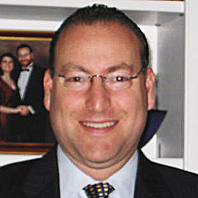|
|||||||
Kenneth L. Marcus: Boycott of Israeli Academics Forcefully Rejected
- By Kenneth L. Marcus
- November 24, 2009
Kenneth L. Marcus: Boycott of Israeli Academics Forcefully Rejected
Kenneth L. Marcus
Kenneth L. Marcus is Founder and Chairman of the Louis D. Brandeis Center for Human Rights Under Law, former Assistant U.S. Secretary of Education for Civil Rights, and author of The Definition of Anti-Semitism (Oxford University Press: 2015) and Jewish Identity and Civil Rights in America (Cambridge University Press: 2010). On the occasion of his recent transition from public service, the Jewish News Syndicate commented that, “In two short years, Marcus did as much, if not more, to fight anti-Semitism on college campuses as anyone in government has ever done.”
Marcus founded the Brandeis Center in 2011 to combat the resurgence of anti-Semitism in American higher education. At that time, the Jewish Daily Forward described him as one of “the new faces of Jewish power,” predicting that “if Marcus has any say in it, we may witness a new era of Jewish advocacy.”
During his public service career, Marcus has also served as Staff Director at the United States Commission on Civil Rights and was delegated the authority of Assistant U.S. Secretary of Housing and Urban Development for Fair Housing and Equal Opportunity. Shortly before his departure from the Civil Rights Commission, the Wall Street Journal observed that “the Commission has rarely been better managed,” and that it “deserves a medal for good governance.” Marcus previously held the Lillie and Nathan Ackerman Chair in Equality and Justice in America at the City University of New York’s Bernard M. Baruch College School of Public Affairs.
Before entering public service, Mr. Marcus was a litigation partner in two major law firms, where he conducted complex commercial and constitutional litigation. He has published widely in academic journals as well as in more popular venues such as Newsweek, USA Today, Politico, The Hill, The Jerusalem Post, Commentary, The Weekly Standard, and The Christian Science Monitor. Mr. Marcus is a graduate of Williams College, magna cum laude, and the University of California at Berkeley School of Law.



